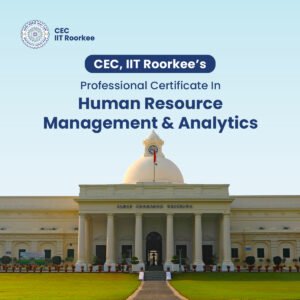In the dynamic world of business, one thing remains constant – the importance of employees in an organization’s success. Happy, engaged employees are the lifeblood of any company, and this is where the role of HR management becomes crucial.
Human resource management, often abbreviated as HRM or HR, involves a strategic and cohesive methodology for efficiently overseeing individuals within a company or organization. This approach aims to empower the business to secure a competitive edge by optimizing employee performance to align with the organization’s strategic goals.
In this post, we’ll dive deep into the role of HR management and employee engagement, exploring key strategies and practical tips to help you grasp the significance of this partnership.
Human Resource Management: An Overview
Human Resource Management (HRM) is a fascinating field that sits at the intersection of business and people, playing a significant role in the success of an organization. The role of HR management involves managing people within an organization and includes activities like recruitment, training, performance appraisals, motivating employees, and much more.
In the realm of HR education, HR management course fees at prestigious institutions like IIMs and other esteemed MBA colleges across India soar to the tune of Rs. 15 lakhs to Rs. 20 lakhs. Meanwhile, other B-schools fall somewhere in the spectrum, with fees ranging from 8 to 15 lakhs.
HRM is often considered the heart of an organization. It ensures that the right people are in the right jobs, that employees are motivated and engaged, and that the workplace environment is conducive to productivity and innovation. Companies are implementing innovative employee engagement strategies in 2024 to foster a more productive and motivated workforce.
What is the Role of HR Management
- Recruitment and Selection: This involves attracting the right candidates for job vacancies and selecting the most suitable ones. It’s a critical function, as the success of an organization heavily depends on the quality of its workforce.
- Training and Development: Roles and responsibilities of HR manager includes identifying the skills gap among employees and organizing training programs to bridge these gaps. This helps in the personal development of employees and prepares them for future roles.
- Performance Management: The role of HR management is vital in setting up performance appraisal systems to evaluate employee performance. This helps in identifying high performers, providing feedback, and deciding on promotions or increments.
- Employee Relations: Maintaining a positive work environment and good relations among employees is another important function of HRM. This includes conflict resolution, ensuring fair treatment, and promoting open communication.
- Compensation and Benefits: HRM designs competitive compensation packages to attract and retain talent. This includes salaries, bonuses, benefits, perks, etc.
HRM has changed from being only an administrative task to becoming a strategic partner in today’s cutthroat business climate. Nowadays, role of HR manager is to take part in strategic decision-making which is crucial to accomplishing corporate goals.
What is the Significance of Effective HR Management?
Effective HRM is the conductor of the corporate orchestra. It ensures that every department, every team, and every individual is in sync with the organization’s goals. The roles and responsibilities of HR manager comprise the recruitment of new talent, akin to auditioning musicians for an orchestra, ensuring that only the best join the ensemble.
-
The Composer of Employee Growth
HRM composes the symphony of employee growth. Through training and development programs, it helps employees fine-tune their skills and perform their best. It’s like a maestro helping a violinist perfect a complex piece of music.
-
The Harmonizer of Employee Relations
HRM is the harmonizer that maintains a positive work environment. It resolves conflicts and promotes open communication, much like how a conductor ensures harmony among the musicians.
Lastly, HRM designs competitive compensation packages to reward hard work and dedication. It’s like applause from the audience, acknowledging the musicians’ performance.
The role of HR management is not just about managing resources; it’s about conducting a symphony of diverse talents toward achieving organizational success. It’s about creating harmony in diversity, guiding each individual towards their best performance, and ultimately creating a masterpiece – a successful organization.

The Role of HR Management in Employee Engagement
Hiring Right from the Start
- The journey towards employee engagement begins with recruitment. HR professionals are responsible for identifying candidates who not only possess the required skills but also align with the company’s culture and values.
- A well-defined hiring process, including behavioral interviews and cultural fit assessments, can lead to better employee engagement.
Onboarding and Orientation
- Effective onboarding sets the tone for an employee’s tenure. HR should ensure new hires feel welcomed, informed, and comfortable from day one.
- A comprehensive onboarding program can help new employees integrate seamlessly into the organization.
Clear Communication and Expectations
- HR plays a crucial role in facilitating communication between management and employees. Clear job expectations, performance objectives, and regular feedback are essential.
- Use regular one-on-one meetings to provide constructive feedback and recognize achievements.
Training and Development
- HR must invest in employee growth. Training and development opportunities not only enhance skills but also show that the company cares about employee progression.
- Encourage continuous learning through workshops, courses, and mentorship programs.
Employee Well-being Programs
- A healthy work-life balance is crucial for engagement. HR can introduce wellness programs, mental health support, and flexible work options.
- Consider offering employee assistance programs (EAPs) for personal and professional support.
Recognition and Rewards
- Acknowledging and rewarding employees for their hard work boosts morale.
- HR can design recognition programs that celebrate achievements.
- Implement a peer recognition system to encourage teamwork and camaraderie.
Conflict Resolution
- HR is often the mediator when conflicts arise.
- Effective conflict resolution ensures a harmonious work environment.
- Encourage open dialogue and a non-confrontational approach to resolving disputes.
Performance Appraisals
- Regular performance appraisals provide employees with a sense of direction and opportunities for growth.
- Link individual goals to organizational objectives to create a sense of purpose.
Crafting the HR Magic: Strategic Role of HR Management to Enhance Employee Engagement
-
Casting the Perfect Spells Through Recruitment
Imagine HR professionals as skilled sorcerers, wielding their powers to find the perfect candidates. It’s not just about skills; it’s about discovering that mystical alignment of values and culture. When you hire individuals who resonate with your company’s essence, you’re already off to an impressive start in the quest for employee engagement.
-
Potion of Clear Communication
In the realm of HR magic, clear communication is the potion that brings harmony. Cast spells of open dialogue, provide crystal-clear job expectations and let the magic of feedback flow freely. When everyone understands their role and feels heard, they can perform their magic better, contributing to the company’s mystical tapestry.
-
The Training Cauldron
HR sorcerers brew potent training potions that empower employees to reach their full potential. Invest in their magical growth with workshops, courses, and mentorships. As they level up their skills and knowledge, they become more powerful allies in your company’s quest for success.
-
Charms of Well-being
In the world of HR magic, employee well-being is like a protective charm. Create spells for wellness programs, mental health support, and flexible work arrangements. When your employees are happy and healthy, they can perform their enchantments with vigor, adding to the overall magic of the workplace.
Measuring and Improving Employee Engagement
The role of HR manager doesn’t end with implementing strategies; it also involves continuous measurement and improvement:
Employee Surveys
- Regular surveys can gauge employee satisfaction and identify areas for improvement.
- Use anonymous surveys to encourage honest feedback.
Data Analysis
- HR can leverage data analytics to track engagement levels, identify trends and potential issues.
- Invest in HR software that offers data-driven insights.
The Final Words
The role of HR management in employee engagement cannot be overstated. From the initial hiring process to ongoing support and development, HR professionals are instrumental in creating a workplace where employees are not just satisfied but truly engaged.
By following best practices and fostering a culture of open communication and continuous improvement, HR can transform a company’s workforce into its most valuable asset.
Remember, employee engagement isn’t just an HR responsibility; it’s a shared commitment between HR and the entire organization.
When HR takes the lead in championing engagement, everyone benefits, creating a thriving, motivated, and successful workforce.
Step into the world of Imarticus Learning’s HR management course, which offers participants the tools and knowledge needed to become true maestros of human resource management in today’s dynamic business landscape.
IIM human resource management is like a treasure trove, spanning a vast array of topics that encompass the very essence of HR wizardry.
From unraveling the mysteries of job analysis and design to crafting spells for strategic hiring, selection, and employee retention, they guide you through the enchanted forest of performance management and appraisal.
You’ll also learn the ancient art of training and development, unlock the secrets of pay and benefits sorcery, and become skilled in the arcane arts of competency development and diversity management.
With their guidance, you’ll even learn how to shape the very essence of your organization’s culture and weave spells to enchant and engage your employees in the mystical journey of business success.

